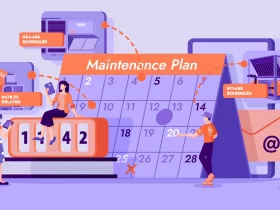Customer Relationship Management (CRM) systems have become essential in various industries, helping businesses maintain and strengthen relationships with their clients. The healthcare industry is no exception and can reap extensive benefits by using CRM. This article will break down everything you need to know about the three main types of healthcare CRMs and how they can enhance healthcare providers’ service quality.
Operational CRM: Streamlining Administrative Tasks
The first type of CRM in the healthcare industry is operational CRM. This system focuses on automating repetitive tasks, optimizing business processes, and improving daily operations. Examples of tasks that an operational CRM can help automate include appointment scheduling, managing patient information, and sending reminders for upcoming visits. This type of CRM helps healthcare providers save time and resources, allowing them to dedicate more focus on patient care.
Analytical CRM: Turning Data into Insights
Analytical CRMs collect and analyze data from various sources to help healthcare providers make data-driven decisions and improve their services. By utilizing an analytical CRM, healthcare providers can gain a comprehensive understanding of patient trends and preferences, develop targeted marketing campaigns, and identify areas for improvement.
In addition, an analytical CRM can help healthcare providers monitor their performance and adapt their strategies based on real-time data. This type of system can lead to improved patient satisfaction, increased operational efficiency, and better decision-making overall.
Collaborative CRM: Enhancing Communication and Coordination
The third type of CRM, collaborative CRM, is designed to improve communication and collaboration among healthcare providers and their patients. By fostering better communication between healthcare professionals, staff members are better equipped to provide optimal patient care. Collaborative CRMs can facilitate this communication by sharing patient records and information across different teams and departments, scheduling joint appointments or meetings with multiple professionals, and providing staff with access to a unified platform for messaging and coordination.
Collaborative CRMs can also enhance communication with patients by providing a one-stop platform for secure messaging, telehealth consultations, appointment booking, and more. As a result, patients have improved experiences, and providers can achieve better patient outcomes.
By knowing the benefits of a CRM in the healthcare industry, providers can select the right type of CRM based on their needs and goals. Remember that operational CRMs are ideal for streamlining administrative tasks, analytical CRMs are best for harnessing the power of data, and collaborative CRMs are designed to enhance communication and coordination within the healthcare organization.
Final Thoughts
In today’s fast-paced healthcare environment, CRMs play a crucial role in helping organizations effectively manage and optimize their patient relationships. By understanding the three types of healthcare CRMs – operational, analytical, and collaborative – healthcare providers can identify the most suitable CRM system for their organization and harness the technology’s full potential. By effectively implementing a CRM strategy, healthcare providers can not only improve their operational efficiency but also provide better care for their patients.










